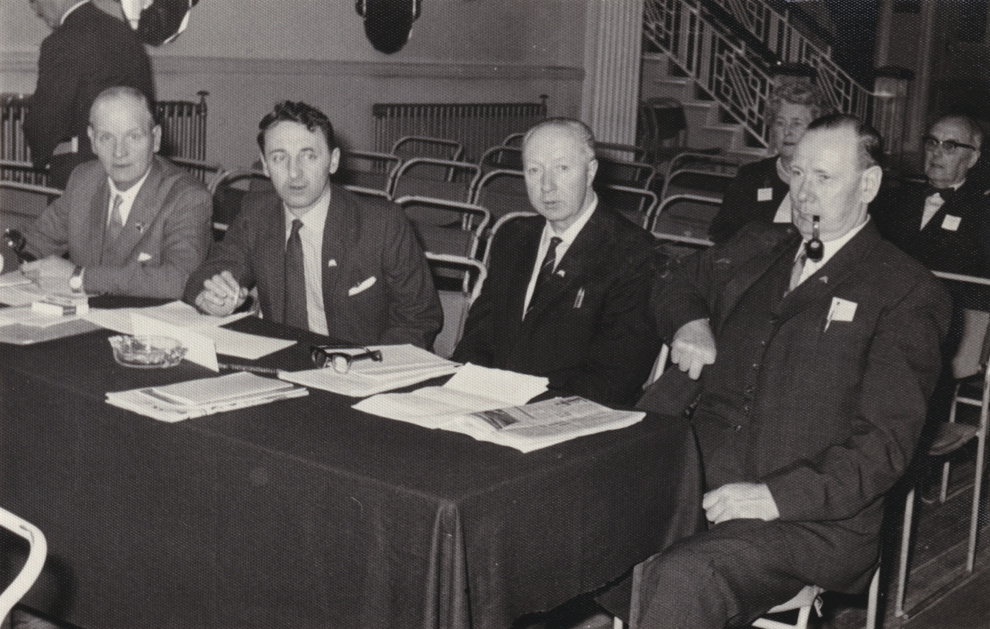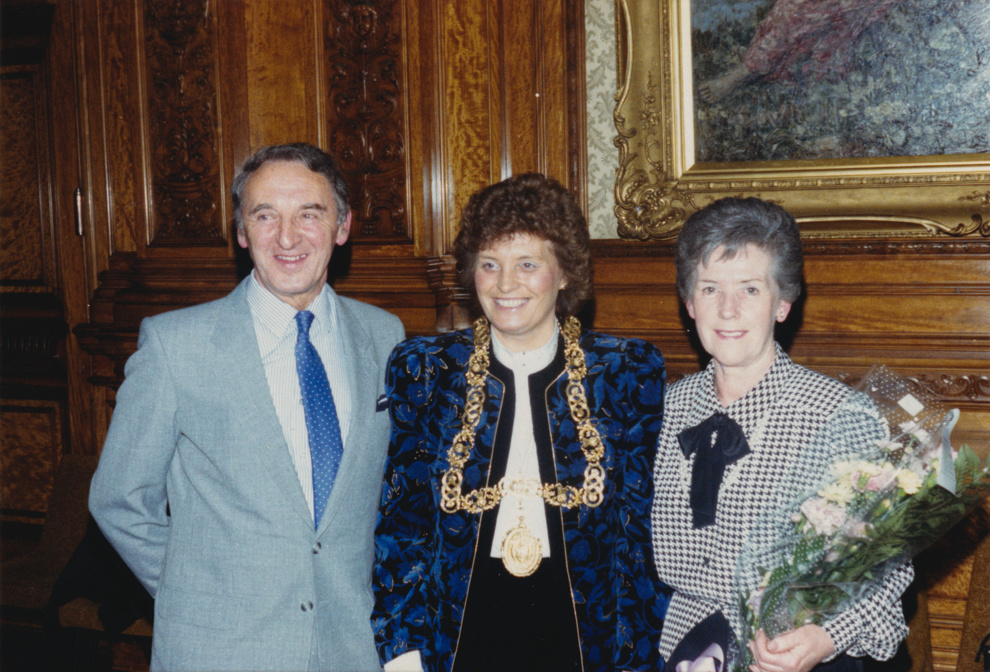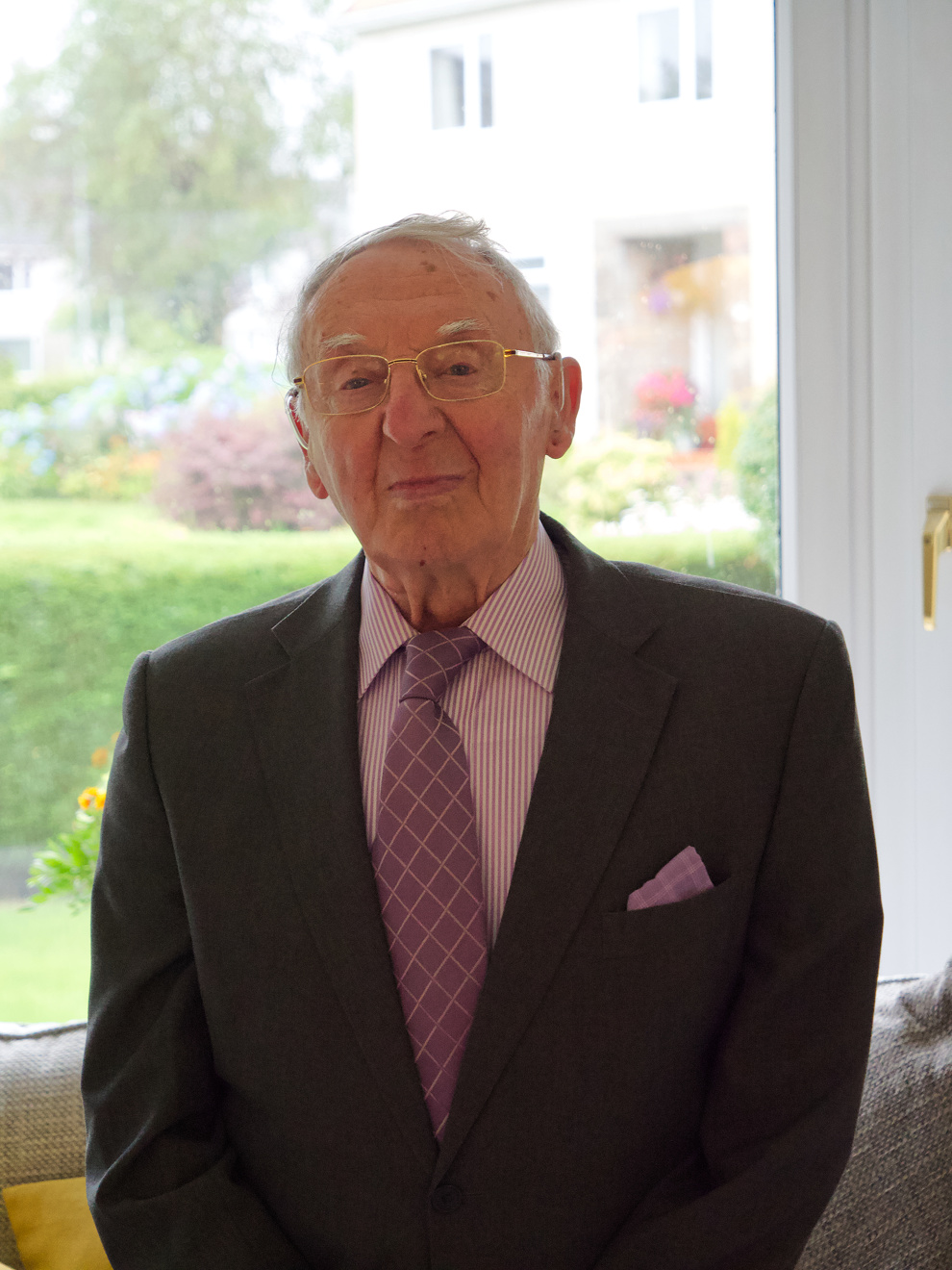I read in a recent copy of Blesma magazine that about 4% of Blesma Members are over the age of 90. As I am 97 years old, it prompted me to share my story.
During the early part of WWII (between 1939 and 1941) I worked in John Brown’s Shipyard in Clydebank, near Glasgow. In wartime, the job was classed as a reserved occupation which meant you could not be called up for the Armed Forces. Most young men were anxious to join the Forces and I was no different. In 1941, I left the shipyards and started work as a locomotive engineer in the local gas works knowing full well that I would be called up.
In the summer of 1942 I was called up for service, and reported to the Bridge of Don barracks in Aberdeen for Infantry training.
Arriving at the barrack gates for the first time was quite an experience for a young man. Everything was strange and new; for most of these young men it was their first experience of being away from home. After training, I was transferred to the Seaforth Highlanders and went to Daltonin-Furness to complete a specialist course combining the Bren Gun Carrier and the mortar.
I can still recall one occasion whilst training when I loaded the three-inch mortar shell and the sheer force blew my helmet off!

ACTION AND INJURY
In September 1943, I was posted to Italy via Algiers, arriving in the Port of Taranto. We were transported to Foggia to join the 6th Battalion of the Seaforth Highlanders, who were waiting for reinforcements prior to going into battle against the German Army. In December, we were transported to the west coast of Italy to get ready for the push towards Cassino.
The first part of the offensive was to cross the Garigliano River, which was heavily defended. On 17 January 1944, we headed in darkness towards the river, but about 400 yards away, the leading troops walked into an area that had been mined by the Germans. The explosion alerted them and soon, the whole area was being raked by machine gun fire. Mortar shells were landing with deadly accuracy. Many were killed and wounded.
As we waited for troops from another battalion to take us across the river I was hit in the left arm by shrapnel from a mortar. I was taken by truck to a casualty clearing station where I received some attention and, a few hours later, I was transferred to a field
hospital where my left arm was amputated.
A week later, I was taken by hospital ship to Algiers then to an Army hospital on the outskirts of the city where I convalesced for a couple of weeks before being brought back to the UK in another hospital ship. I spent three days in a hospital in Leeds before being sent back home to Glasgow in February 1944. A few weeks later, I was fitted with an artificial limb and, for two weeks, I attended an Artificial Limb Centre where I received instructions in the use of the limb and its various attachments.
I was discharged from the Forces in March 1944. At this time, educational and technical courses were available for ex-Service personnel who were unable to continue their normal employment due to their disablement. I chose a course in bookkeeping and accountancy at Stow College in Glasgow, and on completion was offered a position with the then-Glasgow Corporation.
I joined Blesma in 1946 and began a long and active association with the charity. In 1948, I was appointed to the Committee of
Management, Glasgow Branch. At this time we had more than 100 members meeting twice a month to discuss topics such as
better War Pensions, transport issues and prosthetics. Prior to the advent of Social Work and DSS, the Welfare Committee was heavily involved in home visits.
During the next 40 years, Blesma was run exclusively by war limbless Members and a Head Office staff of about five. Area meetings were held twice a year and there was an annual conference, where delegates went armed with resolutions, motions and amendments.
I was Branch Treasurer for almost 60 years and, as membership declined, held the dual positions of Branch Secretary and Treasurer from 1981. As Treasurer, one of my jobs was to organise an annual appeal each November, sending out more than 1,000 letters to businesses and individuals. The returns allowed us to set up an appeals list of subscribers which enabled the Glasgow Branch to present healthy cheques over the years for the homes in Crieff and Blackpool.
For more than 50 years I was a regular delegate at the annual conference and Area meetings, where I enjoyed meeting with other Members.

RECOGNITION OF A LIFETIME’S WORK
In May 1994, I attended the 50th anniversary pilgrimage to Cassino and Anzio organised by the Royal British Legion with my late wife Isa. It was a very moving experience for us both. Ten years later, in February 2004, members of the Glasgow Branch took the decision to close it. It was a sad day, as Glasgow had been one of the founder member Branches of Blesma.
In 1987, in recognition of a lifetime’s work for Blesma, I was awarded the Certificate for Long and Meritorious Service (Gold) and, in 2000, was presented with the Ernie Law Memorial Award Citation. I was very honoured to receive both of these awards. Over the years I have seen a lot of changes to the work the Association does and also in the advancement of modern prosthetics and the difference it has made to so many limbless people.
Blesma does such good work, and I always look forward to reading the magazine and keeping up to date with all that is going on.
I still like to keep busy. I have been a long-time member of the local bowling club, and I enrolled on a computer course a few years ago. I have an iPad now, and during lockdown I was introduced to FaceTime to help keep in touch with my family. I have enjoyed it so much that I now prefer this method of communication rather than phone calls!
I send my best wishes to all at Blesma.
George Watson
Age: 97
Member since: 1946
Military Service: Seaforth Highlanders

GOT A STORY? GET IN TOUCH!
Have you got a great story you’d like to tell? Want some help publicising an event or expedition you’re planning? It’s easy to put your story in the magazine – just get in touch at editor@blesma.org
We can help
We are dedicated to assisting serving and ex-Service men and women who have suffered life-changing limb loss or the use of a limb, an eye or sight. We support these men and women in their communities throughout the UK. Click the link below to find out the different kinds of support we offer.
Get Support
Leave a comment
Join fellow Members and supporters to exchange information, advice and tips. Before commenting please read our terms of use for commenting on articles.